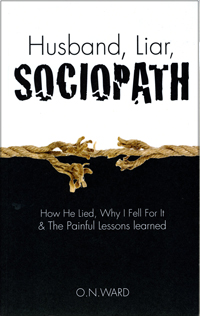
By Amber Ault, Ph.D., MSW
Our ancestors in Northern latitudes exercised deep wisdom when they burrowed in during the dark of winter, reflecting on the turning of the wheel of the year through its previous cycle of renewal, harvest, and loss, gathering with loved ones to share warmth in myriad ways, and beginning to dream of spring.
Many in the US feel a deep disconnection between our intuitive need for rest, reflection, and re-connection at the end of the year and survival demands, the cultural push of consumer capitalism to buy our way into “getting it right” with loved ones, and the tiny amounts of “time off” or “time away” we can create. Too often, even people here who have the luxury of arranging down time don’t feel safe taking it; and those of us who do step away spend that precious time running around, catching up, taking care of business we’ve neglected while we’ve been taking care of business, and giving ourselves a hard time about how we don’t measure up as we compare ourselves to the cultural holiday ideal generated several generations back under very different circumstances.
Holidays ain’t what they used to be, especially for people in the US.
This is a common experience.
What happens when we add to this already stressful endurance contest a problematic family member or partner or ex or boss, one with a toxic personality or substance abuse problem? We might call what you feel an “anticipatory dread” — and it’s deeper and more disempowering than the mild discomfort of the office gathering you resent or making chit chat with benign but disconnected cousins. The anticipatory dread of holiday drama may have you fervently strategizing how to put yourself into suspended animation until the New Year begins.
Or longer.
It’s a thought.
What most of us need is not to numb up or withdraw but, instead, to connect. To relax. To somehow take a breather from the stress of overwork or underemployment, and the fragility created by isolation, invalidation, fear, and frustration. To appreciate what’s good. To recharge our emotional batteries for what lies ahead. This may require luxurious, glorious, unapologetically self-caring solo time, or restructuring our holidays to spend time with people in ways that support mutual comfort and joy. If we can connect with others with whom we feel safe and secure, whose company we value, with whom we share mutual respect and exchange support and encouragement, we get the vital moments/hours/days of recovery that most of us need.
Every year, I receive desperate messages from folks around the holidays asking how to handle a toxic person in the mix. People write about dilemmas with parents, siblings, kids, in-laws, exes, and colleagues. Often, they ask why the toxic member of their family does what they do, whether they cause chaos intentionally, what the toxic person gets out of it, and why holidays seem to bring out the worst in people with toxic personalities.
These are reasonable questions, but knowing the answers to them won’t let you have a drama-free holiday season.
People want to have the great, chaos-and-commotion-free holidays they can envision, and they want to achieve this without feeling like A Bad Person — you know, the adult offspring who avoids the parents’ home, the sibling who feels caught in triangulation with a niece or nephew who doesn’t deserve to be excluded because of a toxic parent, the former spouse feeling responsible for an ex who plays the pity card, or the person dreading the family reunion because a partner’s alcohol-induced meltdown has become as much a part of the family tradition as hanging the mistletoe.
From my point of view, a better line of questioning focuses on how you can prevent the toxic drama that you fear is inevitable.
While each situation has its idiosyncratic nuances, the commonalities across toxic holiday drama scenarios allow me to offer a few general insights and strategies that might help you, if your precious holiday time is vulnerable to hijacking by toxic terrorism. I hope you’ll find these strategies helpful in freeing you from seasonal drama and allowing you the chance to truly rest and recharge this holiday season:
- Own your experience. Your holidays are *your* holidays. You deserve to celebrate them in ways that feel … celebratory. How are you going to arrange that? Unless you can own your experience, you are vulnerable to someone else owning it — and that’s what makes us vulnerable to disempowerment and held captive by someone else’s drama.
- Assume that the toxic behavior of the person who concerns you this year will be similar to their behavior in the past. Yes, people change (thank goodness!), but if you are fervently hoping that “this year will be different from other years,” with no strong evidence of change, you’re not exercising hope, but, instead, denial. It’s an old saw, but it’s true: to keep doing the same thing while expecting a different result is an exercise in frustration. If we want something different to happen, we need to do something differently. So, based on what you know about the toxic dynamic that worries you, assume the troubling person will behave in the usual way. Your behavior, under your control, has the potential to change the dynamic — and your experience.
- Adopt a stance that holds other people responsible for their behavior and holds you responsible for yours. If you’ve agreed with a family member to exchange only one gift each year and they exceed the limit, they’ve broken an agreement — there’s nothing there for you to feel guilty about. (If you exceed the limit, you’re also violating an agreement!). Establish in advance how you will handle this, and then follow-through as planned. There’s no need for drama, just a plan that you can execute in a balanced way, such as returning all but one gift to the giver, or re-gifting all but one gift, without argument or negotiation. If you’ve communicated to the family member who is prone to drunken rages that you will take their car keys when they are drinking or call police when they escalate, follow through. Holding others responsible for their behavior and holding yourself responsible for your own solves an abundance of problems, reduces the tendency toward inappropriate guilt, and allows you to act in empowered ways.
- Give yourself permission to be flexible, within your integrity. If you need to celebrate the holiday on an off-calendar day, or plan a solo day before or after family time, do so; if a card or present from a loved one arrives “late,” or if your holiday cards go out “late,” or if you don’t have the juice to send holiday greetings except by social media, offer kindness to yourself and others. If you anticipate a volatile situation or an alienating one, based on past experience, plan on exquisite self care in the moments when you face those situations again, knowing that with less responsibility for the other person’s behavior, you can have a different experience. It’s okay for you to plan in advance to leave a tumultuous toxic holiday scene, and to have a back-up plan that you’ll enjoy if Plan A is a matter of the Same Old Thing.
People who work with me know I’m fond of “magic phrases.” Here are a few you can use this holiday season to help yourself get ahead of the drama:
- “I already have plans.”
- “I can come for two hours.”
- “It won’t work for us to host you, but I’ll send you some hotels in the area, and we’ll be happy for you to join us for x,y,z.”
- “I’m experimenting with a new tradition this year, so I won’t be continuing to do x,y,z.”
- “It seems you’re having trouble staying calm, so I’ll take the kids out for the rest of the day.”
- “I’m going to be turning off my phone (etc.) for the day.”
- “I’m happy to spend time with you as long as it’s civil. If we can’t maintain that, there’s something else I’d like to do.” [And be prepared to go do it.]
- “Seems you’ve changed your mind about going to xyz [or doing xyz], so I’ll just head on over there [or take care of that] myself.”
- “My plan is to enjoy my holiday. I’m happy to spend time with you as long as it’s peaceful and fun.”
- “I’m going to leave now.”
- “I don’t have time for unnecessary suffering.”
- “I invite you to do something different.”
- “What can you do to help yourself?”
The world is in a very delicate, challenged place. It needs all of us to step up, and we need reserves and resilience to do that. Winter holidays provide us with a small window of opportunity to pause, however briefly, to reflect, and to get a little restoration. I hope you will protect what you can of that opportunity and celebrate it wisely, well, and peacefully.
Happy, empowered holidays to you!
A2
Amber Ault, Ph.D., MSW
The author of “The Five Step Exit” and other books, Amber Ault, Ph.D., MSW provides individual and partners’ coaching to people from Amsterdam to Istanbul, Jerusalem to Jersey, and Minneapolis to Medford. You can find her at www.amberault.com.
Dr. Ault is an instructor for Lovefraud Continuing Education. Check out her “Five Step Exit” webinars for survivors and therapists.




































 11 Answers to questions about sociopaths
11 Answers to questions about sociopaths
Sunnygal
Great article. I like ‘what can you do to help yourself?’
Sunnygal
Also like #7. i got a christmas gift with a meanspirited news article.
regretfullymine
I went through holiday ‘dramas’ with my ex, for 29 years. I came to dread ANY holidays such as Xmas, Thanksgiving, Easter; the ‘biggies’ focused on family get-togethers, meals, church going. He almost always staged a scene of one kind or another; on the way TO the event, or on the way HOME from the event. (he’d be good as he could be, during the event however). And, those scenes were ALWAYS blamed on me. Though Ive been divorced for many years, I still feel anxious and wary of enjoying these holidays (too many bad memories). I do the best I can; I do some things, let others go. Since our 3 sons/kids are estranged from me, I dont see them much, if at all. That is what really hurts my holiday enjoyment. I try not to listen to all the ‘happy grandparent’ chatter about pictures, the newest grandkid(s), get-togethers..I sit and listen, but I dont ‘rain on their parades by telling what I DONT have. Its too painful to share. I’ll be petsitting, as I often do, during holidays and have a nice dinner with other singles/alone ones at a community event. At least Im not sitting home alone.
Sunnygal
The fantasy is everyone has a happy family. The reality is most have some dysfunction, not to the extent of spaths but some. Some people find a Family of Choice.
Joanie Bentz, B.S., M.ED, LBS, CCBP
This was a great article, and expounds on my recent blog here on Lovefraud about PTSD and the holidays……I like the suggestions on how to deal with the drama! 😨
Sunnygal
Wonderful article.
Sunnygal
Very helpful article.
Sunnygal
Your behavior can change things.